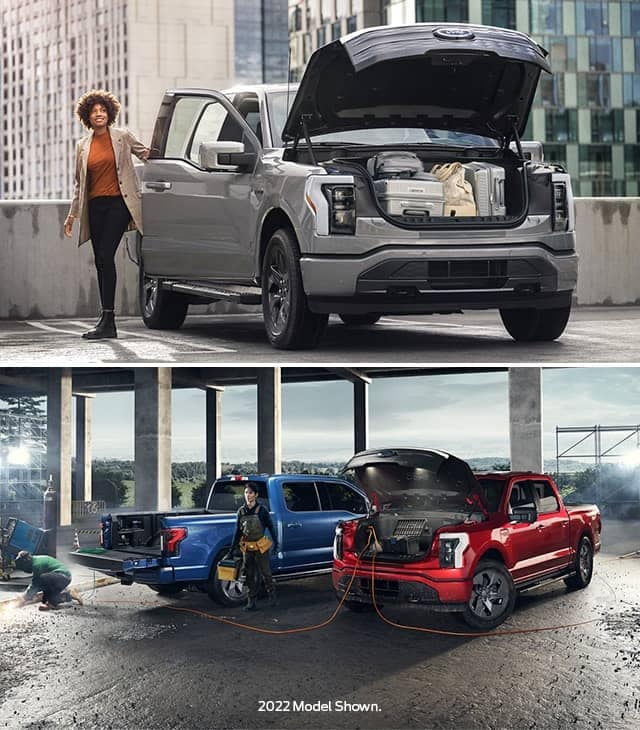By getting in the way, federal lawmakers caused there to be too many EVs, which is likely to hurt both the car market and the environment.
Ford Motor recently said that it is lowering the price of its F-150 Lightning electric car, which was released in 2021.
The Lightning now has a suggested retail price of $49,995, which is about $10,000 less than its previous suggested price of $59,974. The company says that the price drop is made possible by lower "battery raw material costs and continued work on scaling production and cost."
Ford's choice to cut the price by nearly 20% may have had something to do with lower costs for battery minerals and production, but that may only be half the story.

EVs are not exactly flying off the shelves, according to a number of stories. In fact, they are everywhere.
"After a long time when EVs quickly left dealerships, the industry now has the opposite problem: models that haven't been sold are piling up," Money said last week. "There are about 92,000 EVs on dealer lots right now. That's a 342% increase from a year ago, when there were only about 21,000," says Cox Automotive, which does research on the car industry.
Ford isn't immune to the fact that people aren't buying as many EVs. The Mustang Mach-E, the company's best-selling car, had 44 percent less sales in May than in the same month last year.
The Lightning has done better, but it still can't keep up with 2022. It won the title of "EV King of Pickup Trucks" after Ford sold almost 16,000 of them. And now the company has some tough new rivals. (I'll say more in a minute.)
This was not what most people thought would happen.
After a record-breaking year, the International Energy Agency said in a study that came out in April that EV sales would go up by 35 percent. But economists I talked to said that such expectations were too optimistic given how the economy is doing right now.
This makes me wonder about important things. Is the large number of electric vehicles just a result of a tighter money supply?
It seems not. As Axios pointed out, there are 92,000 EVs sitting on lots right now, which is a lot compared to the number of gasoline-powered cars.
"That's a 92-day supply, which is about three months' worth of electric vehicles and almost twice the average for the industry," Joann Muller wrote. "Compared to that, dealers only have 54 days' worth of gasoline-powered cars in stock."
In other words, shops have a lot more EVs than gas-powered cars, even though taxpayer-funded credits of up to $7,500 were meant to get people to buy EVs.
This shows that almost everyone, from central planners to automakers, got the demand for electric vehicles (EVs) wrong. EVs aren't even as good for the environment as politicians would have you think.
Physicists say that to make a single battery for an electric vehicle (EV), about 500,000 pounds of rocks and minerals must be dug up. This means that EVs aren't much better for the environment than gas-powered cars.
It turns out that making EVs takes a lot more CO2 than making cars that run on gas. Electric vehicles (EVs) can make up for that, but it takes a long time because EVs often run on energy made from fossil fuels. How long is it? In 2021, Volvo said that its C40 Recharge needs to be driven 70,000 miles before its carbon emissions are lower than those of its gas-powered version.
All of this means that a bunch of unused EVs are not only a financial problem for car sellers and car companies, but they are also bad for the environment.
Still, the fact that EVs aren't selling as well as expected doesn't mean that their future is bleak. On the contrary, as battery technology and facilities for EVs improve, more people are likely to want to buy them. Ford's Lightning, which has a small battery, can only go half as far as its gas-powered F-150. This is a problem, especially since charging stations aren't always easy to find.
For now, though, car companies are fighting with each other to get customers in an EV market that is smaller than expected. So, let's talk about Elon Musk.
Last week, Tesla released its much-hyped Cybertruck, which directly competes with the Lightning and may have been a reason why Ford cut the price of the Lightning.
By getting in the way, federal lawmakers may have caused an oversupply of EVs, which is likely to hurt both the car market and the environment. But one of the best things about capitalism is that in the end, customers will decide who wins and who loses in the EV market.
We don't know yet if that will be Musk's Cybertruck or Ford's Lightning. In either case, competition is driving prices down, which is good for people who want to buy an EV.
But the fact that there are so many electric cars on the market shows how dangerous it is to let the government decide what people should drive.


























